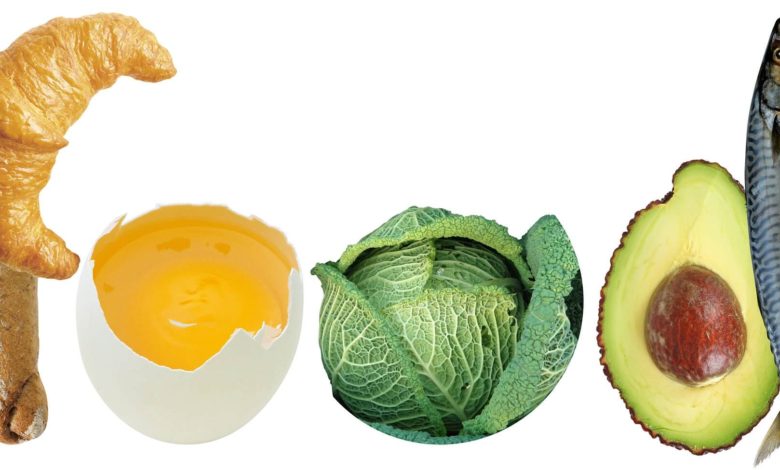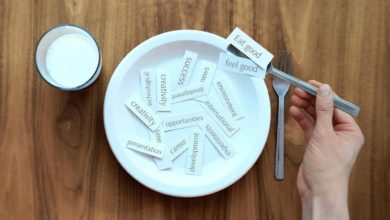Living Conditions That Activate Autophagy

In recent years, an increasing number of studies have been carried out on the beneficial effect of certain living conditions changes in activating the autophagy mechanism, which is programmed cell death. Experts dealing with many issues from diet to exercise, sleep, coffee and tea habits argue that it is possible to initiate programmed cell death if applied correctly. This article contains information about some living conditions that allegedly activate the autophagy mechanism:
Aerobic Exercise
Aerobic exercise has been shown to induce autophagy in muscle tissues and the brain in animals, possibly due to the long-term stress associated with physical exertion. When exercising, the person feels great and not only improves his overall health, but also activates autophagy to allow cells to fully recover from the process.
Intermittent Fasting and Calorie Restriction
Intermittent fasting and calorie restriction activated autophagy in animals. The lack of nutrient flow stimulates autophagy to increase the recycling of cellular components and keeps cells functioning properly with less need from outside sources. This can be achieved by continuing for a period without any food (fasting) or by reducing the amount of food eaten (calorie restriction). It has been shown that short-term starvation triggers deep neuronal autophagy and can be a good method in combating neurological conditions.
Ketogenic Diet
The ketogenic diet reduces carbohydrate intake and increases fat intake leading to a shift in energy use from glucose to ketones. This shift mimics the process that occurs during fasting and thus can lead to increased autophagy. According to animal studies, ketogenic diets may increase autophagy in the brain, which some researchers suggest is a vital mechanism for preventing neurodegenerative diseases. However, this link has not been demonstrated in humans. People struggling with fasting or calorie restriction are often put on a ketogenic diet.
Sleep
Autophagy is activated during sleep. Circadian rhythm not only helps control the sleep cycle, but is also linked to autophagy. The internal biological clock affects the rhythm of the autophagy. In mice, sleep interruptions negatively impacted autophagy, and when animals are disturbed, autophagy occurs following an interruption in protein transmission.
Coffee
Coffee mice have been shown to improve autophagy. A large meta-analysis of more than 340,000 people in the UK revealed that only heavy drinkers (more than six cups a day) experienced cardiovascular disease with a higher rate than non-normal, while drinking moderate coffee (one or two cups a day) decreased CVD rates. shows. Although this study did not specifically investigate autophagy, it shows that drinking moderate coffee is at least harmless to the heart. Also, impaired genes and autophagy mechanisms have been associated with CVD in animals. There is no study that will not investigate whether this speculative relationship between caffeine, autophagy, and CVD exists in humans.
Green Tea / EGCG
According to a mouse study, active ingredients in green tea can activate autophagy. In particular, polyphenols such as epiglo-catechin-3-Gallate (EGCG) activated autophagy in the livers of mice given 3.2 g EGCG per kg diet; Researchers decided this dose to be a harsh equivalent to a person who drank 10 cups of green tea a day. People would have to drink lots of green tea for this type of intake, and the link between EGCG and liver autophagy has not been proven in humans.
Resveratrol
Resveratrol is a polyphenol found in low doses in grapes, wine, peanuts and soy. Several studies have reported the autophagy-inducing activity of resveratrol in cells. In rats, caloric restriction and resveratrol together (not just two) increased cardiac autophagy. However, this benefit has not been demonstrated in humans and resveratrol is infamous for its low bioavailability.
Curcumin
Curcumin is the most active phytochemical in turmeric and has many health benefits. In a mouse study, curcumin induced autophagy and reversed some of the damage caused by osteoarthritis. It has been reported that autophagy in cells is activated by curcumin (via AMPK signaling).
Vitamin D
Vitamin D is obtained through diet, supplements, and synthesis in the skin after exposure to sunlight. In mice and isolated cells, vitamin D in pancreatic cells induces autophagy, providing a possible route for use in diabetes. More studies are needed to determine whether the association between vitamin D, pancreatic autophagy, and diabetes exists in humans.
Omega-6 and 3 Polyunsaturated Oils
Supplements containing omega 6 and 3 polyunsaturated fats can increase autophagy. In one study of mice with traumatic brain injury, omega-3 fatty acids increased autophagy and prevented the death of neurons. In worms, omega-6 fatty acids increased total life by activating autophagy and slowing the aging process. But these results have not been replicated in humans and should be taken with a grain of salt. An excellent source of omega fatty acids is fish oil.
Nicotinamide
Nicotinamide is a member of the B vitamin family and an ingredient to make the basic energy molecule nicotinamide adenine dinucleotide (NAD). In a mouse study, nicotinamide increased autophagy in neurons, delaying the progression of Alzheimer’s and cognitive decline. In particular, its ability to induce autophagic recycling of mitochondria may benefit cellular health.
Lithium
Lithium is a chemical element that has been reported to have many health benefits when used as a supplement. Many studies have shown that lithium is part of a signaling pathway that promotes autophagy in mammals. Lithium appears to induce autophagy by inhibiting inositol triphosphate (IP3), a protein that plays an important role in neuronal plasticity. In animals, lithium has been reported to increase the degradation of aggregate-prone proteins that cause Huntington’s disease, Alzheimer’s, and dementia. Some researchers attribute these effects to an increase in autophagy.
Spermidine
Spermidine is a polyamine compound found in a wide variety of foods. Spermidine levels decrease as people age, creating a correlation between spermidine and most of the aging markers. In addition, spermidine-rich diets have been associated with reduced rates of cardiovascular disease and cancer. Spermidin has been found to activate autophagy in animals; Some researchers have therefore suggested that it can induce autophagy in humans and thus delay aging. Autophagy activation has been reported to aid age-related declines and prolong the lifespan of several organisms. Some of the foods with the highest reported spermidine levels are dried soybeans and one-year-old cheddar cheese.
Trehalose
Trehalose is a sugar that contributes to the protection of the body. It has been reported to induce autophagy and inhibit cytomegalovirus infection and have neuroprotective properties. Most of the research on trehalose and autophagy has been done in cells, but a study of maternal diabetes in animals showed that trehalose maintains healthy autophagy levels even in the presence of excess glucose.
Drugs That Trigger Autophagy
Some drugs target the autophagic pathway. They can increase autophagy to help clear problematic targets (e.g. bacteria and dysfunctional proteins) from within cells, or they can use autophagy as a tool to induce death of cancer cells. A doctor should always be consulted before taking any medication. Some of these medications are:
- Sirolimus, also known as Rapamycin, causes autophagy by inhibiting mTOR.
- Fentanyl is a powerful, synthetic opioid pain medication that causes autophagy by activation of the ROS / MAPK pathway.
- Carbamazepine, a drug primarily used in the treatment of epilepsy and neuropathic pain, has been shown to cause autophagy and to be effective on multidrug-resistant Mycobacterium tuberculosis.
- Metformin, a diabetes drug, is an autophagic promoter that has been tried in the treatment of Alzheimer’s and reported to improve anxiety-like behavior.
- Imatinib, a chemotherapy drug used to treat cancer, causes autophagy in chronic leukemia cells.
- Bortezomib, an anticancer drug, causes autophagy in head and neck carcinoma cells.





